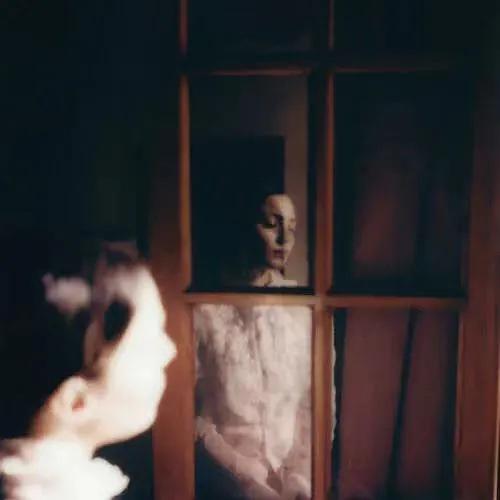题图 / Francesco Sambati
在池塘边,我坐在木头长椅上
往柳树丛里丢小石子。
阳光和风的突涌在水面上制造了一个通道,
在融化的冰层和褐色的蒲草小岛之间跳舞。
驻留的鱼鹰,那双草黄色的眼睛,
追随着我投掷的手。
爱是内在生命展示给外在世界的全景模型。
我向下看,找到一块化石
一只完整的贝壳在上面凸现、
我并不是害怕“爱”,但它对我持续的引导,让我感到深深恐惧。
有一次,当我感到疲惫,我离开小路,爬到一棵树下休息。
我醒来看到一只年轻的棕熊在舔我的靴子。
我从来没有感觉这么好。
当我说“我爱你”,我的意思是“我不会离开你”。
即使爱没有回报,它也不会离开,
即使它最终变成一个黑洞。
这是不是就像树木失去了叶子的绿色?
在中午日光挪移,池塘
变成了一片不透明的绿冰组成的马赛克。
橙红的鲤鱼在这冰冷的水室中上升,浮出水面呼吸。
我一直爱着他。面对着太阳。面对着月亮。
作者 / [美国]伊丽莎白·雅各布森
翻译 / 光诸
Above a pond, I sit on a wooden bench
and throw pebbles into the willows.
A rush of sunlight and wind creates a path in a channel of water, dances
between the melting ice and brown islands of bulrush.
The resident osprey, its eyes the color of yellow grass,
follows my tossing hand.
Love is a diorama of inner life in an outer world.
I look down and find a chunk of fossilized rock
with an entire Paleozoic shell sticking out.
I am not afraid of love, but terrified of how it is my steady guide.
Once, when tired, I wandered off the trail and crawled under a tree to rest.
I woke to a young brown bear licking my boot.
Nothing had ever felt that good.
When I say I love you, what I mean is I wouldn’t leave you.
Even if love is not loved back it doesn’t go away,
although it may become a black hole.
Could this be what it’s like for trees to lose the green from their leaves?
At noon the light shifts and the pond turns
into a mosaic of opaque green ice.
Orange carp rise in these cold watery chambers to breathe at the surface.
Always I am in love. Face to face with the sun. Face to face with the moon.
by Elizabeth Jacobson
这是一首关于“爱而不得”的诗。爱而不得,但却仍然在寻求。如果爱一个人又希望得到回报,那么希望既是丛林里遥远的光明,又是身边灼人的火焰。所以诗中说,可怕的不是爱本身,而是爱对人持续的引导。
这首诗里有大量的“闲笔”,但其实每一笔都表现着“爱而不得”的心境,作为中国古典诗歌的读者,我们对这种写法再熟悉不过。但作者是一个新墨西哥的女性,所以诗中带着更多的狂野。我们看到鱼鹰跟踪她的手势,棕熊舔舐她的皮靴。为什么遭遇猛兽她会有“最好的感觉”?或许在思念的时候,发现有生物陪伴,使她感到释然?如果是这样,我们也只能说她此刻已经分不清恐惧和渴望中的欢悦,因为它们的张力都过于强大。
此时回看,我们才发现这首诗题目的深意:“十四首情歌”:虽然诗中写了阳光和风,写了冰层和蒲草,写了贝壳和树木,但字里行间都是四个字——“爱而不得”。

近期评论